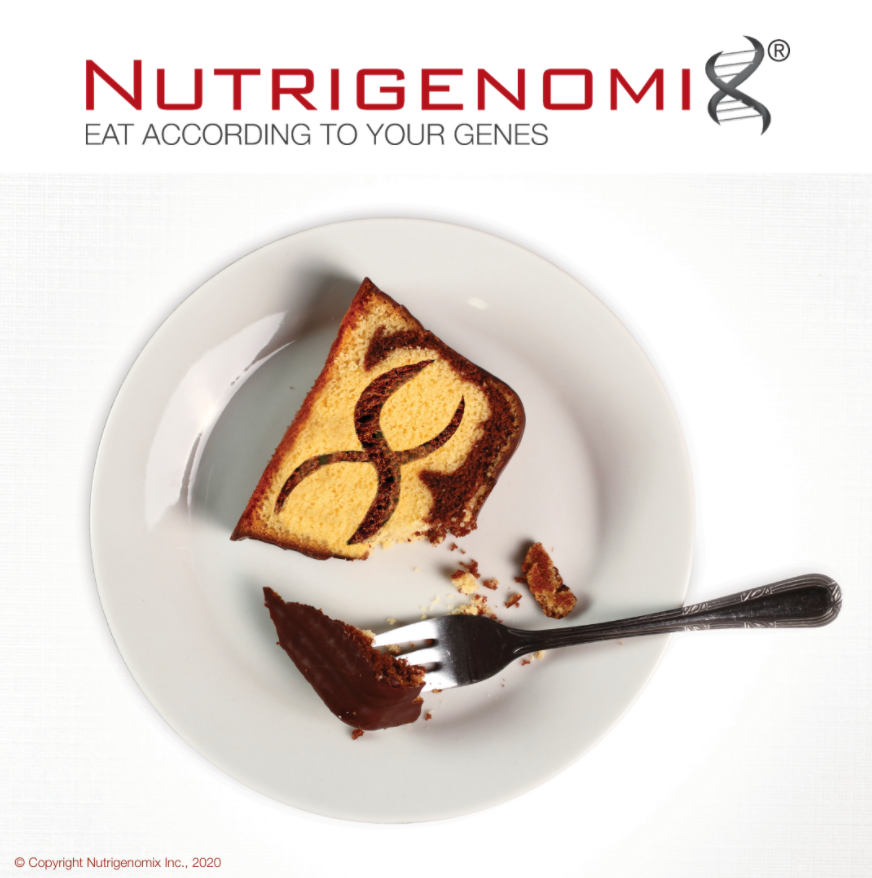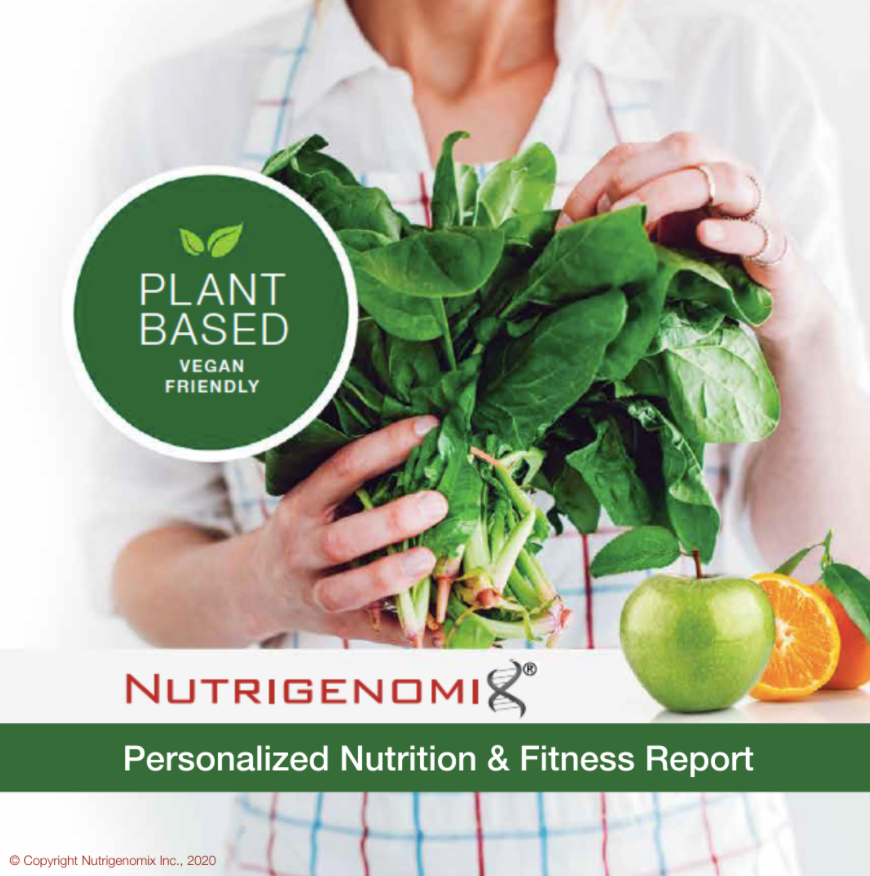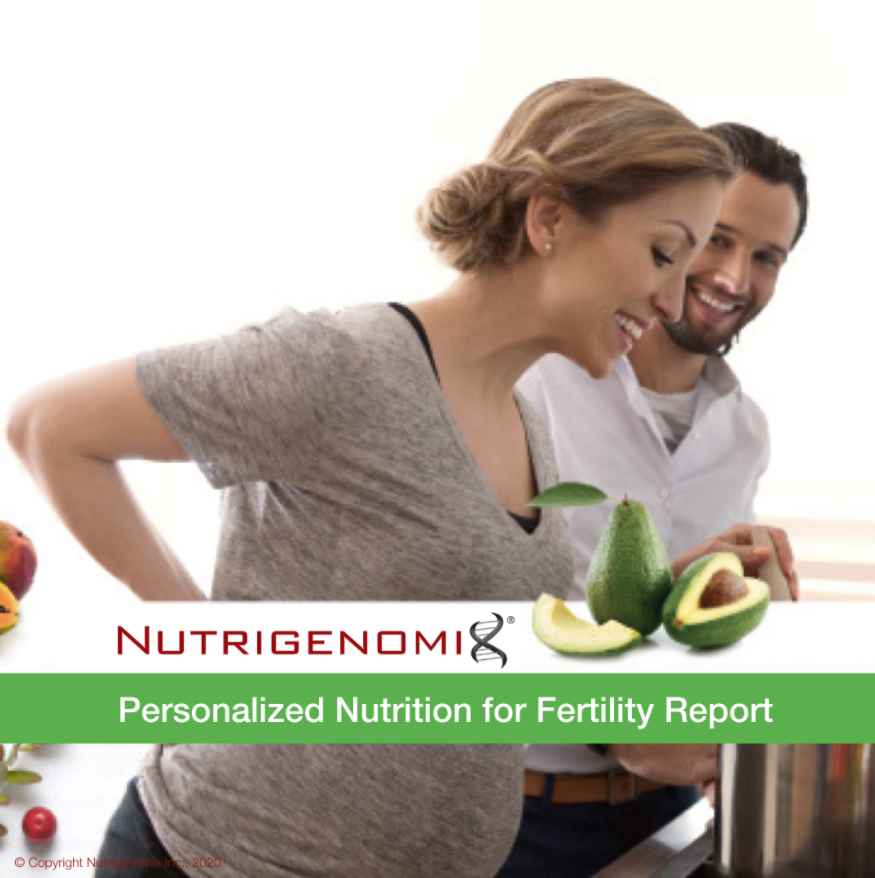The Future of Nutrition…Eat According to Your Genes
Ever wonder why people respond so differently to various foods? Why do some people react severely to the lactose in milk while others have no problem with it at all? Turns out the answer could be in their genes.
Nutrigenomics is an emerging field of study that uses modern genomic technology to study the relationship between genes, nutrition and health. It allows us to discover how our genes impact the body’s response to the foods and beverages we consume [1].
Growing evidence suggests that our genes affect our nutrition status and can thereby directly impact health. What makes individual humans unique are differences in the 25,000 genes our human genome consists of. Not only do these impact the way we look, but they can also impact the way we use and metabolize nutrients in different foods [1]. As an example; some individuals benefit from the effects of caffeine while others may actually be at an increased risk of heart disease if they consume too much. Some individuals may benefit from consuming more omega-3 fats while others can simply follow the general recommendations [1].
What do we know about NUTRIGENOMIX?
Nutrigenomix is a start-up biotechnology company out of the University of Toronto that works to empower healthcare professionals and their clients using nutrigenomic science to create personalized nutrition information. Dr. Ahmed El-Sohemy, the founder of Nutrigenomix received a PhD from the University of Toronto and went on to complete his postdoctoral fellowship at the Harvard school of Public Health. He also serves as Chair of Nutrigenomix’s International Science Advisory Board (SAB) which consists of important opinion leaders in the nutrigenomics field [1].
Nutrition advice is predominantly based on Canada’s food guide and the recommendations for the general population. By creating customized advice as a result of one’s genetic profile and unique response to food, your dietitian can help tailor your food choices to optimize health.
how does it work?
Nutrigenomix offers various tests to choose from including ones for general health, fertility, sport, as well as plant-based diets. These tests were developed by world-renowned researchers and consist of 70 genetic markers.
DNA kits consist of a simple saliva test or cheek swab.
Analyzed results are sent back to your healthcare providers (registered dietitian).
Results are broken down into numerous different categories including how you metabolize various foods, food intolerances or sensitivities you may have, eating habits, injury risk and more [1].
Understanding these results can help you make more informed food choices.
Nutrigenomix FAQ
(as per company FAQ page)
Q: How is Nutrigenomix different from other genetic tests?
A: Nutrigenomix is widely regarded as the global leader in genetic testing for personalized nutrition. We have developed an award-winning panel of genetic tests exclusively for use by healthcare professionals. The company was founded by leading researchers in the field of nutrigenomics and personalized nutrition, and our genetic tests were developed according to stringent standards of scientific evidence.
Q: What are the genetic tests that you currently offer?
A: We offer the following 70-gene tests:
Nutrigenomix® Health & Wellness test (Health),
Nutrigenomix® Sport & Performance test (Sport),
Nutrigenomix® Fertility test (Fertility), and
Nutrigenomix® Plant-based test (Vegan).
For the Plant-based test, the genetic markers remain the same as our 70-gene Health test, excluding lactose, which is not relevant to vegans.
Q: Do all tests analyze the same 70 genetic markers? A: Yes, all tests analyze the same 70 genetic markers (except for the Plant-based report which excludes the gene responsible for lactose metabolism). However, the recommendations in each report are slightly modified depending on the type of test ordered, and the wording is tailored specifically to the target client (e.g. reference to fertility outcomes or athletic performance).
Q: What is the difference between the Health, Sport, Fertility and Plant-based tests?
A: While all tests report the same genetic markers, each test is intended for a different clientele.
The Health test focuses on achieving optimal health for clients who are pursuing general well-being. For example, these clients would be interested in addressing factors that influence weight management, cardiovascular health and maintaining healthy blood sugar levels, while optimizing their energy levels and improving fitness.
The Sport test is designed to provide nutrition and performance-related recommendations that will help athletes of all levels boost physical and mental performance while optimizing body composition and nutritional status.
The Fertility test is designed to provide nutrition recommendations that will help individuals (male or female) who are trying to conceive by optimizing their fertility potential.
The Plant-based test focuses on achieving optimal health and well-being, and is designed to suit the dietary needs of both vegetarians and vegans.
Q: What is an example that demonstrates how the information differs between the reports?
A: Caffeine is a great example. Though the CYP1A2 gene is analyzed for caffeine metabolism in all tests, each report focuses on different information and provides different recommendations depending on your client’s goals.
The Health and Plant-based reports focus on risk of heart attack and hypertension based on caffeine consumption and genetic variation.
The Sport report highlights the effects of caffeine on endurance performance while still discussing heart disease risks.
The Fertility report focuses on caffeine’s effects on time to establish pregnancy, and pregnancy-associated health conditions such as prediabetes and hypertension. Your recommendations would essentially be the same regardless of which report you ordered.
So, if you are a ‘slow’ metabolizer of caffeine, you would be advised to limit your caffeine intake to no more than 200 mg/day to reduce your risk of cardiovascular disease (e.g. Health or Plant-based report) or to optimize your performance (e.g. Sport Report). The exception would be the Fertility report where the recommendation is to limit your intake to no more than 100 mg/day based on some of the science linking caffeine to pregnancy outcomes.
Q: How would clients benefit from having this genetic test over just following general dietary recommendations?
A: The DNA-based recommendations we provide build on current recommendations by making advice more personalized. For example, current recommendations for coffee are to consume no more than 4 cups per day. However, research published in the Journal of the American Medical Association shows that about half of the population has the ‘slow’ metabolizer version of the CYP1A2 gene that increases their risk of heart disease if they consume more than 2 cups per day. With this test, you will know which CYP1A2 gene variant your client has and can provide more specific advice based on their results. The same applies to advice for other aspects of the diet such as sodium, iron, calcium, omega-3 and omega-6 fat, and much more.
follow us on instagram
Blog Contributor
Kendall Saravanamuttoo
WESTERN UNIVERSITY STUDENT
HONOURS SPECIALIZATION IN HEALTH SCIENCES
Reference
Nutrigenomix (2020). Genetic testing for personalized nutrition. Nutrigenomix.











